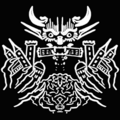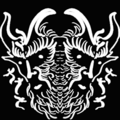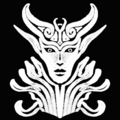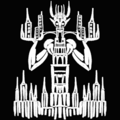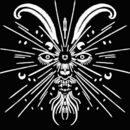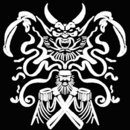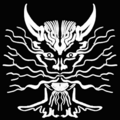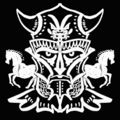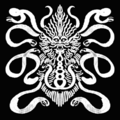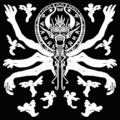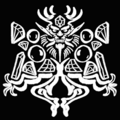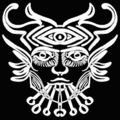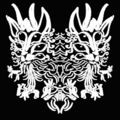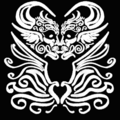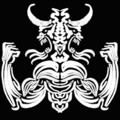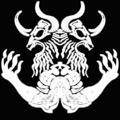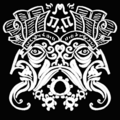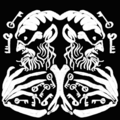More actions
No edit summary |
No edit summary |
||
| Line 1: | Line 1: | ||
==Spirit Alignment== | |||
Spirits can generally speaking only be Aligned to one Dimensional Alignment (except for Primal Revenants). These Alignments also affect how they compare to one another, so this section sets out basic information of how Spirits can be viewed in relation to each other, and mortals or the greater and more powerful Spirits mentioned further on this page. While they all have unique names all forms of Spirits have the same Proficiency capabilities and Roleplay Mechanic access when it comes to Character design for fairness sake, even if the lore states that some Sprits are weaker than others. | |||
===Void Spirits: Demons=== | |||
Demons as a term is most commonly and widely used to define any Spirit, an incorrect labeling that applies widely because of the ignorance among the common people towards the science behind Spirits. Demons are the most common Spirits across Aloria, purely because of the number of Void Invasions that have happened, and the number of Kathar/Evolism believers who choose the Void Gods to transcend their Soul into a Spirit. Void Demons are considered strong but very obvious, they love to make their presence known and are usually not very subtle. They are inclined to all the vices of the Arken, but in being so, are considered very predictable. | |||
===Exist Spirits: Apparitions=== | |||
Apparitions as a term is rarely used, because Exist Apparitions are often mistaken for Demons, despite being from opposing dimensions. Apparitions are far less numerous because the Exist Gods and Estel have been far more conservative with the creation of Spirits, not sprinkling them around as cannon fodder for war, but purposeful designation where religiously or morally relevant for their creators. Exist Apparitions are considered weaker, but far more elusive, they are adept at hiding and working in mysterious and unseen ways to fulfill their own, or their creator's goals. They are inclined to the virtues of the Arken, but in being so, can be quite cruel. | |||
===Ordial Spirits: Shades=== | |||
The term Shade is inherently almost a slur for Spirits from the Beyond, with their own preferring to use the term Facsimile. The truth lies somewhere in the middle. Because Shades are created when mortal souls are consumed by Ordial Entities, they are created incomplete, and usually bereft of aspects that the Ordial entities took out. They may for example have lost abilities, memories, or emotions and relations to people. This does not impede on a Shade's ability to become a great fighter or magical entity, but it does weaken their capacity to manipulate and control mortal souls, as their soul is incomplete and they are a crude reflection of the soul they were copied from, that perished in the process. Shades should never be underestimated because of all of this, but the vast majority of Shades are mindless drones who aren't even self aware of their condition, as the Ordial Entities have a much stricter strangle-hold on their consciousness than the Spirit Sovereigns do for other Demons or Apparitions. | |||
===Alorian Spirits: Revenants=== | |||
Aloria's native Spirits are called Revenants, and they are only created in very specific conditions, and never induced into some sort of Spirit Legion from Alorian entities unless they become Planar Aligned to the Void/Exist/Ordial and join their Legions willingly. Primal Revenants are, very much like Shades, incomplete souls as a byproduct of the process of their creation. Unlike Shades however, they still possess the original soul (that in the case of the Shades is destroyed), it is just shrouded in a mind-fog that obscures certain memories, feelings, relations, or emotions. Primal Revenants are bound to the mortal world because of a strong feeling, or an incomplete life goal or mission that they have yet to complete. This also means that if this precondition to their creation is fulfilled, that their soul will become complete and they will pass on into the appropriate afterlife. As a result, Primal Revenants are considered weaker than Shades even, because their existence is temporary, however Planar Alignment changes disrupt this nature and makes them more permanent. | |||
==Theurgists== | ==Theurgists== | ||
| Line 18: | Line 28: | ||
===Evolist View=== | ===Evolist View=== | ||
Evolism as a Religion considered transcendence to Spirithood to be a true blessing from the Gods, and widely considered all forms of Void/Ordial Spirits to be good things. Opinions fluctuate on Primal Revenants, mostly because Primal Revenants are very temporary, which Evolism believers consider more of a stay-of-execution until actual death sets in for the individual, thus not the truly wholly freeing experience of becoming a Void Spirit. Note, because of the tonal difference between Void Spirits and Ordial Spirits, Evolists strongly prefer Void Spirits (considering Ordial Spirits diminutive), but practically always look down on Exist-based Spirits as weak and incompetent, purely because there is no Exist alignment in the Evolist pantheon, which means that Exist Spirits must by default serve other false religions. Note again that Evolism is a tolerated and not state Religion in Regalia. As such, even if one of the aspects of Evolism is to transcend and become a Spirit after death, this concept itself is illegal, and anyone who engages or professes a desire to become a Spirit, will face persecution. | Evolism as a Religion considered transcendence to Spirithood to be a true blessing from the Gods, and widely considered all forms of Void/Ordial Spirits to be good things. Opinions fluctuate on Primal Revenants, mostly because Primal Revenants are very temporary, which Evolism believers consider more of a stay-of-execution until actual death sets in for the individual, thus not the truly wholly freeing experience of becoming a Void Spirit. Note, because of the tonal difference between Void Spirits and Ordial Spirits, Evolists strongly prefer Void Spirits (considering Ordial Spirits diminutive), but practically always look down on Exist-based Spirits as weak and incompetent, purely because there is no Exist alignment in the Evolist pantheon, which means that Exist Spirits must by default serve other false religions. Note again that Evolism is a tolerated and not state Religion in Regalia. As such, even if one of the aspects of Evolism is to transcend and become a Spirit after death, this concept itself is illegal, and anyone who engages or professes a desire to become a Spirit, will face persecution. | ||
===Estelley View=== | |||
The Estelley religion proposes a contradiction: that Spirits can be the works of the Gods, but that Spirits, specifically Exist Apparitions, are always created as a test from the Gods given unto mortals to overcome and slay. Allorn history is lengthy with stories of powerful Archmage princesses impressing their legitimate right to rule by challenging and defeating a particularly powerful Spirit of Cemaan sent to assess their strength in the leading of armies, for example. Estelley lacks this religious role for non-Exist Spirits, with Void Demons and Ordial Shades both presented as an entirely hostile force created and intended to lead the believers astray, mandated to be opposed or slain whever possible. Some Estelley worshipers have contradictory opinions to this based on their experiences with Spirits in history. One exception are the Sihndar, who completely disregard the divine lesson aspect of Spirits even if the Spirit is an Exist Apparition in favor of labeling them all constructs of the highest evil, while the other are the Suvial, who in a roundabout way preserve the existence of Spirits that other Estelley worshipers would see banished or imprisoned by using them as servants, which can cause some friction. | |||
==Spirit Arken== | ==Spirit Arken== | ||
Revision as of 04:56, 28 February 2024
Spirit Alignment
Spirits can generally speaking only be Aligned to one Dimensional Alignment (except for Primal Revenants). These Alignments also affect how they compare to one another, so this section sets out basic information of how Spirits can be viewed in relation to each other, and mortals or the greater and more powerful Spirits mentioned further on this page. While they all have unique names all forms of Spirits have the same Proficiency capabilities and Roleplay Mechanic access when it comes to Character design for fairness sake, even if the lore states that some Sprits are weaker than others.
Void Spirits: Demons
Demons as a term is most commonly and widely used to define any Spirit, an incorrect labeling that applies widely because of the ignorance among the common people towards the science behind Spirits. Demons are the most common Spirits across Aloria, purely because of the number of Void Invasions that have happened, and the number of Kathar/Evolism believers who choose the Void Gods to transcend their Soul into a Spirit. Void Demons are considered strong but very obvious, they love to make their presence known and are usually not very subtle. They are inclined to all the vices of the Arken, but in being so, are considered very predictable.
Exist Spirits: Apparitions
Apparitions as a term is rarely used, because Exist Apparitions are often mistaken for Demons, despite being from opposing dimensions. Apparitions are far less numerous because the Exist Gods and Estel have been far more conservative with the creation of Spirits, not sprinkling them around as cannon fodder for war, but purposeful designation where religiously or morally relevant for their creators. Exist Apparitions are considered weaker, but far more elusive, they are adept at hiding and working in mysterious and unseen ways to fulfill their own, or their creator's goals. They are inclined to the virtues of the Arken, but in being so, can be quite cruel.
Ordial Spirits: Shades
The term Shade is inherently almost a slur for Spirits from the Beyond, with their own preferring to use the term Facsimile. The truth lies somewhere in the middle. Because Shades are created when mortal souls are consumed by Ordial Entities, they are created incomplete, and usually bereft of aspects that the Ordial entities took out. They may for example have lost abilities, memories, or emotions and relations to people. This does not impede on a Shade's ability to become a great fighter or magical entity, but it does weaken their capacity to manipulate and control mortal souls, as their soul is incomplete and they are a crude reflection of the soul they were copied from, that perished in the process. Shades should never be underestimated because of all of this, but the vast majority of Shades are mindless drones who aren't even self aware of their condition, as the Ordial Entities have a much stricter strangle-hold on their consciousness than the Spirit Sovereigns do for other Demons or Apparitions.
Alorian Spirits: Revenants
Aloria's native Spirits are called Revenants, and they are only created in very specific conditions, and never induced into some sort of Spirit Legion from Alorian entities unless they become Planar Aligned to the Void/Exist/Ordial and join their Legions willingly. Primal Revenants are, very much like Shades, incomplete souls as a byproduct of the process of their creation. Unlike Shades however, they still possess the original soul (that in the case of the Shades is destroyed), it is just shrouded in a mind-fog that obscures certain memories, feelings, relations, or emotions. Primal Revenants are bound to the mortal world because of a strong feeling, or an incomplete life goal or mission that they have yet to complete. This also means that if this precondition to their creation is fulfilled, that their soul will become complete and they will pass on into the appropriate afterlife. As a result, Primal Revenants are considered weaker than Shades even, because their existence is temporary, however Planar Alignment changes disrupt this nature and makes them more permanent.
Theurgists
Theurgists are people who have some experience or make it their life-trade or skill to summon any form of Spirit into Aloria. Theurgists are sometimes also called Karamatologists (though this is a Suvial term), or Warlocks (though this is a far less common vernacular), and some Theurgists who believe themselves to do good work, consider this a slur. Theurgy as an art is almost widely reviled by all Religions and all legal systems, save for those where the exact nature of Transdimensional Spirit and Cultural-Religious Spirit, somewhat overlap (discussed further below, in the Interpretations section). Theurgists always try very hard to hide their practices from the prying eyes of the government and any organization that hunts Spirits or Spirit summoners. There can be some genuinely skilled Theurgists who know exactly what to say to make the right pacts and bargains with Spirits to always come out on top, but generally speaking, the history fo Theurgy is littered with the corpses of the unprepared and overconfident summoners who either were invaded or just exploded on the spot for contracting powers they could not control. Out of all Magical practices, Theurgy is considered the most dangerous and unpredictable, but also the highest reward yield, as Spirits are commonly held to be the most powerful and versatile tools to acquire more might and influence.
Theurgists distinguish a difference between what they call Summoning: the act of calling forth an independent Spirit with their own mind, and Evoking: the act of calling forth a lesser Spirit. Summoned Spirits are always vaguely humanoid or some other form of monstrous appearance and speak with their own will and thoughts. Evoked Spirits usually don't have a voice or just make bestial or magical grunting noises, and are rarely ever humanoid, more often appearing either like magical essence clouds or lights, or some form of demonic-looking creature or impish fiend. Evoked Spirits are dumb, but can be trained to do simple tasks like cleaning or carrying things around, while Summoned Spirits can only be tricked into these activities, and are more liable to rebel and kill the Summoner if they let their guard down thinking they successfully reduced a powerful Spirit into being their personal house servant. Evoked Spirits have no functional will of their own and will always be under the control of the Summoner, even when the Summoner leaves. Summoned Spirits (or even Spirits that were bound to a Summoner's will, like for example Suvial captive Spirts), are extremely dangerous because they become independent when they leave the vision range of their owner. The Summoner can only give commands while near the Spirit, and so a Spirit will always seek time away from its master to do things that the Summoner neglectfully did not tell it not to do. Theurgists who ignore or let their Spirits roam freely without oversight or a complex 100-layered command contract, are considered extremely novice and carelessly naive Spirit-owners.
Theurgy Limits
Cultural/Religious Interpretations
If a Religion is not mentioned in this section, assume that it just has a blanket negative view on any form of Spirit presence.
Fornoss View
The Fornoss Religion distinguishes a difference between what they call Fjandi (Spirits who are from other Dimensions) and Fylgja (Spirits who may be from other Dimensions but are defined more by being ancestor Spirits, or believers of Fornoss faith). Fylgja are always defined as either having been a mortal Fornoss believer in life and ascended to Vaarda where they were made into Void Spirits by Rand, or Void Spirits associated with Rand or Thirun that were bound in faith to Fornoss. This binding process in particular is important, as Spirits cannot naturally experience spirituality and belief in Religion without a strict spiritual binding. When spiritually bound to Fornoss, these Void Demons worship and obey all the Fornoss Gods (even the Eili), and are considered benign in the eyes of the Fornoss believers. Fylgja are respected, and sometimes even fought alongside with, if religious goals align, but in other instances, they are treated just like any other Fornoss believer would. If they happen to be supporting the wrong side in a war, they are killed just as likely as Fjandi would be. Note, just because Fornoss believers distinguish this religious difference between Fjandi and Fylgja, does not mean Regalia sees it this way. Fornoss is a tolerated, but not state Religion.
Unionist View
Any form of ghost or Spirit is considered evil or corrupted in the eyes of the Unionist faith, even if they were Primal Revenants who formed from the most pious of worshipers. Any form of un-life, undeath, or life after death, is considered a violation of the judgement of the Everwatcher, and a refusal to be judged in his eyes on the Great Way. However, the reality is that Unionist history is littered with examples of extremely Unionist pious entities, like for example Burning Choir Undead, or Primal Revenants of Everians who continued their holy quests through the body of a (sometimes willing) Unionist worshiping host. Religious doctrine is against Spirits as a whole, but a Primal Revenant who is not planar corrupted and holds onto their beliefs of Unionism, can sometimes find sympathy among the lay folk and sometimes even priests, who would rather seek to help this wayward soul complete their holy quest and duty and pass on peacefully, than to inflict violence on the image of piety. There are however also fanatics who simply refuse to listen to any moderating views of Unionist life in between the living and dead, and try to put it out of its misery. This is also the legal stance of the Regalian Empire, so that pity and sympathy for Unionist Revenants and Burning Choir Undead, is more incidental than the norm.
Evolist View
Evolism as a Religion considered transcendence to Spirithood to be a true blessing from the Gods, and widely considered all forms of Void/Ordial Spirits to be good things. Opinions fluctuate on Primal Revenants, mostly because Primal Revenants are very temporary, which Evolism believers consider more of a stay-of-execution until actual death sets in for the individual, thus not the truly wholly freeing experience of becoming a Void Spirit. Note, because of the tonal difference between Void Spirits and Ordial Spirits, Evolists strongly prefer Void Spirits (considering Ordial Spirits diminutive), but practically always look down on Exist-based Spirits as weak and incompetent, purely because there is no Exist alignment in the Evolist pantheon, which means that Exist Spirits must by default serve other false religions. Note again that Evolism is a tolerated and not state Religion in Regalia. As such, even if one of the aspects of Evolism is to transcend and become a Spirit after death, this concept itself is illegal, and anyone who engages or professes a desire to become a Spirit, will face persecution.
Estelley View
The Estelley religion proposes a contradiction: that Spirits can be the works of the Gods, but that Spirits, specifically Exist Apparitions, are always created as a test from the Gods given unto mortals to overcome and slay. Allorn history is lengthy with stories of powerful Archmage princesses impressing their legitimate right to rule by challenging and defeating a particularly powerful Spirit of Cemaan sent to assess their strength in the leading of armies, for example. Estelley lacks this religious role for non-Exist Spirits, with Void Demons and Ordial Shades both presented as an entirely hostile force created and intended to lead the believers astray, mandated to be opposed or slain whever possible. Some Estelley worshipers have contradictory opinions to this based on their experiences with Spirits in history. One exception are the Sihndar, who completely disregard the divine lesson aspect of Spirits even if the Spirit is an Exist Apparition in favor of labeling them all constructs of the highest evil, while the other are the Suvial, who in a roundabout way preserve the existence of Spirits that other Estelley worshipers would see banished or imprisoned by using them as servants, which can cause some friction.
Spirit Arken
Spirit Arken are immensely powerful Spirits like Sovereigns, but because they are Alorian-native, their rules of engagement in Aloria is vastly different. While Spirit Sovereigns represent entities formed in other dimensions coming to Aloria, Spirit Arken (usually just called Arken) are formless essences from these other dimensions taking shape and manifesting entities in Aloria. The word Arken comes from the Meraic word Aanker or Anchor, which represents their identity as metaphorical chains by which the Arch-Exist and Arch-Void could manifest in Aloria. These Arch entities are considered the highest forms of intelligence from their respective Dimensions, but they are so terrifyingly powerful that they cannot manifest in Aloria without having some form of physical attachment there, which is why the Arken were created. The Arken cannot physically enter the dimensions from which they were born, they are bound to Aloria, though they can create pocket-dimensions of their own, the most notable of which is the Void Arken of Power, who created Vaarda, which would eventually become a form of Fornoss religious afterlife. Spirit Arken are complex entities because as they are born to Aloria, and bound to many of its mortal whims and urges, they are often some form of slave to the emotions of mortals. Each Arken is born in order of power, and in order of the power of emotion. This means that for example, the first-born Void and Exist Arken Pride and Justice are the most powerful Arken of them all, and specifically born first because pride is the strongest vice, and a desire for justice the strongest virtue of all mortals of Aloria.
Spirit Arken can also create Spirits and induce Spirits into their Legions, but are less likely to do so. Their Spirits are usually just mindless entities meant to seduce mortals to their nature, for example, a Pride Demon would cause a person to become more prideful and self-serving, while a Justice Apparition would make a person more inclined to exact their merciless justice on what they deem as wrong, morally or legally. Because of their intrinsic connection to Aloria, some would claim that Arken are more like real people than other Spirits ever could be, because they are manifest through parts of the mortal world, rather than just created from magical energy devoid of any attachment. This has led some to conclude, that Arken are more morally gray entities, as opposed to the Spirit Dukes and Spirit Sovereigns, who are purely out to benefit themselves. The world of Aloria does not have Arken, because the concept of a Spirit Arken birth can only happen from an un-bound dimension. Thus, Ordial Arken also do not exist, because the Beyond as a realm is somehow linked to Aloria as its mirror dimension. There is always an even number of Arken of both Void and Exist in the world, with each also being mirror opposite traits: Pride-Justice, Diligence-Sloth, Greed-Charity, and so on. Arken are theoretically immortal, but because of a fluke of the laws of reality concerning the Draconism Denial of Immortality, they are forced into a cycle of rebirth, meaning they can die and be killed, and reborn as a mortal infant each time they do, with no memories of their past self.
Spirit Sovereigns
Spirit Sovereigns are considered the tier of power below the Evolist Gods, with powers akin to that of actual Gods. Spirit Sovereigns command legions of Spirits, and inevitably, all Spirits that are either revived from mortal souls into Spirits, or Spirits created from other realms, are subject to one such Spirit Sovereign. It is possible for a Spirit to break free from their Spirit Sovereign or to betray their command, but this does create animosity between them and other Spirits still bound to that Sovereign's legions. Spirit Sovereigns are ancient Spirits, some speculate they may have been around since the Seraph era, making them 70,000 years old at least, and they were the first-born of essences breaking into Aloria. The Spirit Sovereigns led the legions of the Void in each successive Void Invasion, and as such could be considered "Generals of Hell". The majority of Spirit Sovereigns that are found in Aloria, are by far and large Void-aligned. The Beyond does not produce Spirit Sovereigns, because Shades are not powerful enough souls to become so influential, and obey commands of the Death Gods of the Beyond instead, like the Malefica, Machinist, Consigner, or Glacial. The Exist does produce Spirit Sovereigns, but because of the bound nature of Estel (the Arch-Exist) for tens of thousands of years, and her alignment with mortals for so long, the Exist Sovereigns just lacked the time and repeat-warfare against mortals that the Void Spirit Sovereigns enacted, that created their vast legions. As such, Exist Spirit Sovereigns are rare, and usually a lot more solitary, not only avoiding the creation of extensive legions of Spirits, but also hiding away from being attacked by Void Spirit Sovereigns, who are constantly on the lookout to destroy their polar opposites. A list of all available and widely known Spirit Sovereigns can be found on the Mystech Page.
Spirit Dukes
Spirit Dukes are Spirits of immense power, but not strictly as powerful as Spirit Sovereigns. Spirit Sovereigns command legions of Spirits to serve under them, while Dukes only rule a handful of Spirits, as their notable talent is terrifying powers over curses, magic, and space and time. Spirit Dukes are generally not evil in the strictest sense, they are creatures with a love for the art of the deal. Summoning them is extremely straightforward Spirit Dukes are so widely known that one does not need a traditional Spirit Summoner. Any person who has gotten their hands on a scroll or some kind of writing that describes the summoning circle and accompanying ritual can summon these Spirit Dukes, even if they have never dealt with Magic or Spirits before in their lives, which makes them so dangerous. When summoning Spirit Dukes, one must always contract a time and place in Staff Ticket so that a Staff member can represent the Spirit Duke. Spirit Dukes are extremely dangerous when summoned. When summoning a Spirit Duke, the Summoner gives kill-perms for both them, and anyone else present to the DM, and if things go wrong during a Spirit Summoning, these Characters may receive semi-permanent debuffs, maims, or other long-term character ailments or curses. At the same time, Spirit Dukes offer some unique functions that are not conventionally possible in Roleplay. Interacting with Spirit Dukes should always be treated as something extremely dangerous for someone who is either just so power hungry they don't care, or full of themselves that they think they can outsmart the Spirit Duke. Spirit Dukes will always seek to outsmart their summoner and take more than they are offered, so everyone who shows must be incredibly cautious of what they say, even in mutter and whisper, as Spirit Dukes can hear far and wide, while some Spirit Dukes consider whispering in their presence an offense by itself worthy enough to strike someone down then and there. Spirit Dukes may ask innocuous questions which are pacts in disguise, and may impose more if too much information is given to them, or take more if they are angered by being too secretive. Interacting with Spirit Dukes is always a fine balance between seeking Good Roleplay, and it being a Challenging Experience that tests the Player's tenacity and wit. Spirit Duke interactions are sometimes hidden, but generally always leave some kind of trail of hints. The end product should be satisfactory roleplay between the summoner, their friends, and people who might choose to investigate a person's suspicious behavior, who can still hide behind some form of plausible deniability. Most Spirit Dukes transcend Planar Alignment, meaning that they have become a little bit of everything.
|
|
|
|
|
|
|
|
|
|
|
|
|
|
|
|
